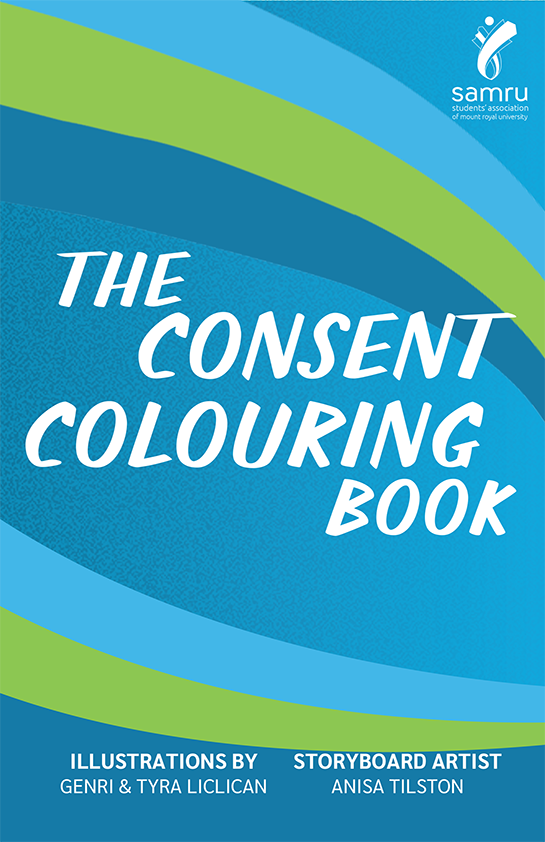Dating, Domestic, and Sexual Violence
Call-to-Action Paper
Campus Resources
SAMRU Resources
Mount Royal University Resources
Dating, Domestic and Sexual Violence
Stepping Up
Residence Advisor
Iniskim Centre
Abusive Behaviours
Physical Abuse
- Pushed, shoved, kicked, slapped, bitten, strangled, hit, punched
- Denied help when ill, injured, or pregnant
- Locked out or denied access into the home
- Use of weapons or objects against the individual
- Abandoned in a dangerous situation
- Not being allowed to leave a situation through physical force
Emotional & Psychological Abuse
- Threats of harm to individual, family, or pets
- Belief systems, race, heritage, class, sexual orientation, or religion is ridiculed
- Manipulated with lies and contradictions
- Stalking
Sexual Abuse
- Forced to have sex or watch sexual acts
- Forced to have sex as a condition of the relationship
- Forced to perform sexual acts or have sexual acts performed on them
Economic Abuse
- Denied access to bank accounts, credit cards, or vehicle
- Prevented from getting or keeping a job or from going to school
- Limits access to health, prescription, or dental insurance
- One partner controls all the finances
Responding to Disclosures of Dating, Domestic, and Sexual Violence
Listen
- Listen without judgment
- Be comfortable with silence
- Allow them to disclose at their own space
Believe & Validate
- Take the disclosure seriously (many people fear they won’t be believed or their experience will be minimized)
- Reassure the student that you believe them, you are there to listen and support them
- Reassure the student that it was not their fault
Restore Choice & Power
- Allow them to have control over all decisions related to their recovery experience, including how they want to be supported
- Respect their decisions in what they want to do next
- Provide them with options and resources available
- Trust their expertise in their life and deciding what is best for them
Be Aware
- Be aware of your own feelings and triggers
- Only make promises you can keep and take on what you can handle
- Don’t probe for details
- Don’t judge someone on their behaviours or choices they made before, during, or after a traumatizing experience
Signs of a Healthy and Unhealthy Relationship
Signs of a Healthy Relationship
- You trust each other
- You both have equal power
- You have the space to make your own decisions
- You make decisions that concern the relationship together
- You both communicate openly and truthfully
- You feel comfortable to express your inner feelings, thoughts, and wishes
- Your arguments are productive and fair
- You share responsibilities and tasks
- You support each other
- You can disagree
- You have fun together
Warning Signs of an Unhealthy Relationship
- Your partner does not hear and accept “no”
- You feel pressured, intimidated, or coerced into making decisions you otherwise would not
- Your partner can be extremely jealous, insecure, or has an explosive temper
- You are constantly being judged, criticized, or put down
- You feel pressured to have sex or engage in sexual activities you don’t want to do
- Your partner monitors what you do or keeps you from going out
- Your phone and email is being checked without your permission
- You are discouraged from spending time with family or friends
- Your partner makes excuses for their behaviour and denies any wrongdoing or personal responsibility

Key Components of Consent
- Consent is the active and affirmative agreement to engage in physical contact or sexual activity.
- Consent is ongoing and can always be withdrawn (e.g. kissing does not necessarily lead to oral sex)
- Consent is always necessary and never assumed, even in relationships: no one is ever “owed” sex.
- It is the responsibility of the person pursuing a sexual activity to ensure there is unambiguous consent.
- In some situations, consent cannot truly be given or shared - too drunk, asleep, duress, not the legal age of consent, etc.
- No consent means STOP, not try and convince. If someone does not stop, they are sexually assaulting.
- The absence of a no does not mean a yes.
- Impaired judgment of the person pursuing sexual activity is not an excuse for sexual violence.
Bystander Interventions
If you see someone being harassed, there are many effective ways you can respond, depending on the situation:
Distract
Direct
Delegate
Delay
Request Training
For enhanced skills on how to respond to a disclosure of sexual violence or how to become an effective bystander, please register or request training at mru.ca/ddsv
Dating, Domestic, and Sexual Violence support is confidential and available to all members at MRU who have been victimized. You can access an advocate by visiting mru.ca/DDSV or emailing sexualviolence@mtroyal.ca. You can also call 403 440 5623 to speak with an advocate directly. We can help you with:
- Immediate support
- Information about resources on and off campus
- Academic accommodations
- Options for reporting to the Police and MRU
- Initiating a report to MRU and providing support throughout the process
- Safety plans
The Consent Colouring Book
Looking for a way to unwind? The Consent Colouring Book is a Representation Executive Council (REC) initiative by your 2024-25 REC VP Student Affairs, Anisa Tilson and REC VP External, Genri Liclican. You can download the colouring book as a .PDF or pick up a physical copy across our student centres in Wyckham House





